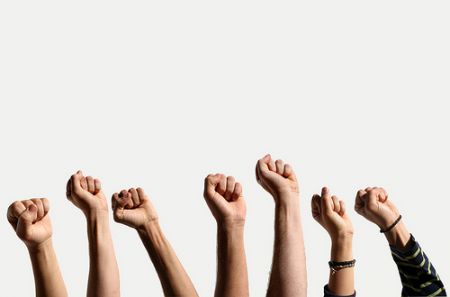A timely reminder of what it means to be a citizen in a democracy.
The opposite of faith is not heresy, it is indifference. Indifference in essence is the paradigm of thought wherein we have either actively or subconsciously chosen not to care. In the globalised era of the modern world, information is perceived instantaneously and we often lack the patience to wait. Progress for progress’ sake has more often than not been the ethos of our generation. What we fail to perceive is that progress alone is precarious in that a solution to a problem brings forth a newer problem and it is at this point of first instance, where we choose to stop and think we have done enough, that it has become a strenuous imposition, we become indifferent.
Notwithstanding the long-drawn political theatrics of the incumbent government and opposition, we Malaysians in general have simply become frustrated, bored and to a certain extent irate at the continuous bickering and fighting over power among the very people we placed in power to serve and not rule us. The reciprocated message is often one of a choice where we choose to deflect the underlying issues that are afflicting the society and the country unto others and remain detached, to solely focus on providing for ourselves and our family. The inherent mentality that follows through as a result of a system devoid of direction is clearly seen when we are told to study hard and obtain straight A’s, to enter a top university and finally to earn a ton of money. This then leads to the question that begs to be asked, “And then what”?

Without realising, we have been methodically trained to take care of our own needs and not be bothered unless the matter at hand concerns our interest. We have been brought up to be subservient to the natural chain of order that we have somewhat lost the drive to naturally question, to critically analyse and to infer our own decisions rather than have one forced upon us. The opposite of faith is not heresy, its indifference and as you read this, Malaysia is at a crossroad. We stand on the threshold of change, paramount to the country’s future and that of the future generation. The 13th General Elections is nigh upon us and we face a disposition unlike any other. Corruption, dirty politics, fraudulent voting and gerrymandering are among the underlying issues that come hand in hand with the coming elections. Nonetheless, the crux of the matter isn’t so much about politics than it is about democracy.
To many, democracy simply means the right to vote in a free country. In principle yes, democracy does provide for the right to vote. However, initially the right to vote was not absolute. It is a right which has been fought for since the time of our forefathers and as such it is a right which needs to be continuously fought for lest we lose sight of it. In today’s context however, the concept of democracy has expanded and exercising your rights takes more than a simple tick at the ballot box once every four years. In Contract Law, the rule states that silence cannot amount to a misrepresentation. The application of this rule to the doctrine of democracy is what has come to be known as participative democracy.
The aim of this concept is to reclaim some of the executive’s powers back to the people wherein we should be taught of our inherent rights and then take a step further in exercising those rights. It can take a form of simple discourse and exchanging opinions at the coffee shop and what this does is it gradually cultivates a new generation of thinkers who question, reflect and analyse before making an informed decision. Once this process is underway, we begin to see a change in paradigm, where we begin to not only take an interest in matters which may not concern us but we begin to care, champion and advocate a cause we infer to be a positive change to this country.
It is at this very instance does indifference cease to exist and we finally begin to take an active role having in mind the country’s best interest can we move forward together as one nation. Participative Democracy can take many forms and the resultant juxtaposition has seen through the early ages of the British Revolution, the Arab Spring and which can now be seen in the upcoming Bersih rally. This does not necessarily mean an all-out tirade against the government but rather taking a stance and fighting for what you believe in. It does not matter which political faction your loyalty lies with, what you should do is strive to challenge the decorum.

Participative Democracy encourages individual initiative wherein if you are dissatisfied with a certain aspect or issue, it is on the onus of the said individual to do something about it be it forming a Do-It-Yourself Community, a Youth Action Group or even join hands with the local Non-Government Organisation (NGO).
Bersih’s cause is for a clean and fair election and should any of you believe in that cause, stand your ground and be heard! Solidariti Mahasiswa Malaysia (SMM) is striving for free tertiary education, claiming that if not for mismanagement of funds, our government should be able to afford it. If you truly believe in their cause, follow suit and be heard instead of being silent! If you think both these movements ideologies are misdirected, state your reasons and stand your ground for what you believe in!
Mahatma Gandhi once proclaimed that healthy discontent is a sign of progress. Never before have these words held more truth for as Malaysians, we can ill-afford to remain silent. It is time to be heard now more than ever, to take action for what we believe in and to stand by our grounds for positive change for the issues afflicting us today will in turn someday affect our children and the coming generations. To conclude, it is of some importance as to who is in office but it is of even greater importance how much pressure they face from the general public – for only when we have stopped caring have we truly given up on our sovereignty.
The author will be standing up for what he believes in this Saturday when he joins the Bersih 3.0 peaceful sit-in for cleaner and fairer elections.

